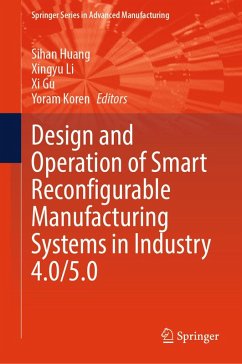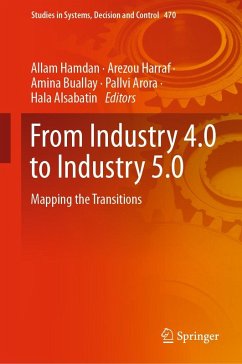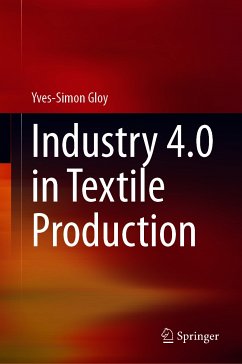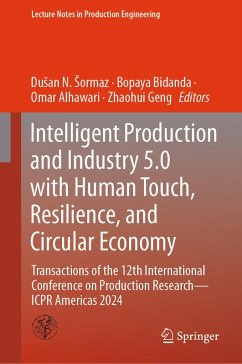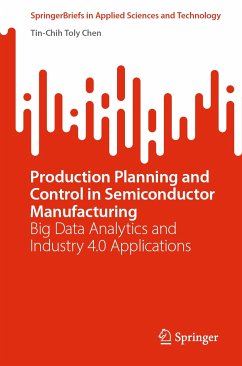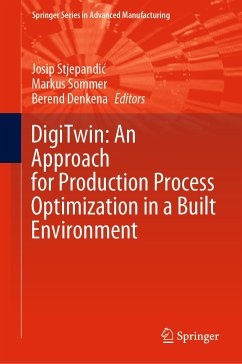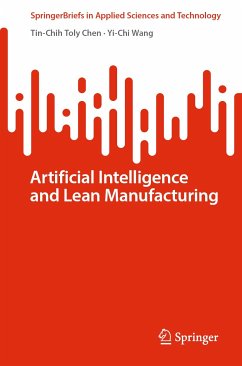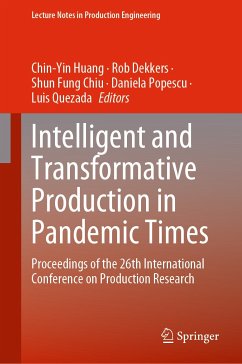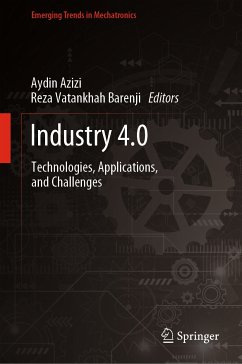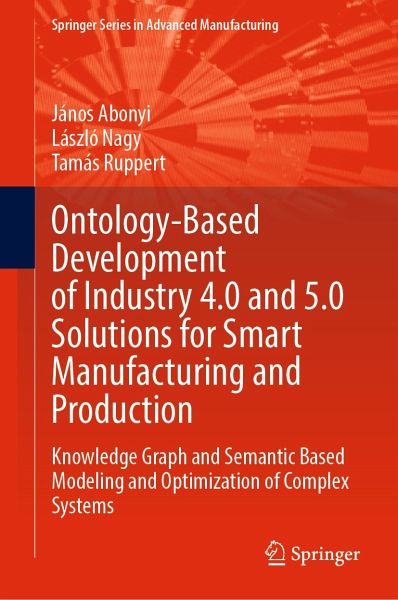
Ontology-Based Development of Industry 4.0 and 5.0 Solutions for Smart Manufacturing and Production (eBook, PDF)
Knowledge Graph and Semantic Based Modeling and Optimization of Complex Systems
Versandkostenfrei!
Sofort per Download lieferbar
120,95 €
inkl. MwSt.
Weitere Ausgaben:

PAYBACK Punkte
60 °P sammeln!
This book presents a comprehensive framework for developing Industry 4.0 and 5.0 solutions through the use of ontology modeling and graph-based optimization techniques. With effective information management being critical to successful manufacturing processes, this book emphasizes the importance of adequate modeling and systematic analysis of interacting elements in the era of smart manufacturing.The book provides an extensive overview of semantic technologies and their potential to integrate with existing industrial standards, planning, and execution systems to provide efficient data processi...
This book presents a comprehensive framework for developing Industry 4.0 and 5.0 solutions through the use of ontology modeling and graph-based optimization techniques. With effective information management being critical to successful manufacturing processes, this book emphasizes the importance of adequate modeling and systematic analysis of interacting elements in the era of smart manufacturing.
The book provides an extensive overview of semantic technologies and their potential to integrate with existing industrial standards, planning, and execution systems to provide efficient data processing and analysis. It also investigates the design of Industry 5.0 solutions and the need for problem-specific descriptions of production processes, operator skills and states, and sensor monitoring in intelligent spaces.
The book proposes that ontology-based data can efficiently represent enterprise and manufacturing datasets.
The book is divided into two parts: modelingand optimization. The semantic modeling part provides an overview of ontologies and knowledge graphs that can be used to create Industry 4.0 and 5.0 applications, with two detailed applications presented on a reproducible industrial case study. The optimization part of the book focuses on network science-based process optimization and presents various detailed applications, such as graph-based analytics, assembly line balancing, and community detection.
The book is based on six key points: the need for horizontal and vertical integration in modern industry; the potential benefits of integrating semantic technologies into ERP and MES systems; the importance of optimization methods in Industry 4.0 and 5.0 concepts; the need to process large amounts of data while ensuring interoperability and re-usability factors; the potential for digital twin models to model smart factories, including big data access; and the need to integrate human factors in CPSs and provide adequate methods tofacilitate collaboration and support shop floor workers.
The book provides an extensive overview of semantic technologies and their potential to integrate with existing industrial standards, planning, and execution systems to provide efficient data processing and analysis. It also investigates the design of Industry 5.0 solutions and the need for problem-specific descriptions of production processes, operator skills and states, and sensor monitoring in intelligent spaces.
The book proposes that ontology-based data can efficiently represent enterprise and manufacturing datasets.
The book is divided into two parts: modelingand optimization. The semantic modeling part provides an overview of ontologies and knowledge graphs that can be used to create Industry 4.0 and 5.0 applications, with two detailed applications presented on a reproducible industrial case study. The optimization part of the book focuses on network science-based process optimization and presents various detailed applications, such as graph-based analytics, assembly line balancing, and community detection.
The book is based on six key points: the need for horizontal and vertical integration in modern industry; the potential benefits of integrating semantic technologies into ERP and MES systems; the importance of optimization methods in Industry 4.0 and 5.0 concepts; the need to process large amounts of data while ensuring interoperability and re-usability factors; the potential for digital twin models to model smart factories, including big data access; and the need to integrate human factors in CPSs and provide adequate methods tofacilitate collaboration and support shop floor workers.
Dieser Download kann aus rechtlichen Gründen nur mit Rechnungsadresse in A, B, BG, CY, CZ, D, DK, EW, E, FIN, F, GR, HR, H, IRL, I, LT, L, LR, M, NL, PL, P, R, S, SLO, SK ausgeliefert werden.



